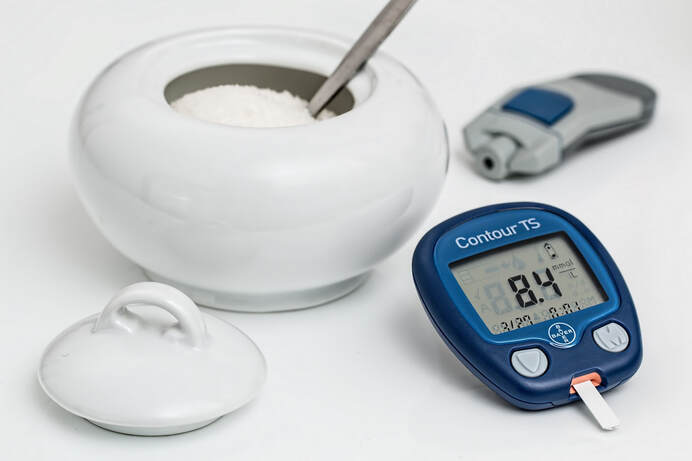Bariatric Surgery for Long-Term Weight Loss: Is It Right for Me?
Obesity, or having excess body weight, is a very common health condition in the United States (US). Around 40% of the US population is obese, and the number is growing. Medically, obesity is defined as having a body mass index (BMI), or weight-to-height ratio, of 30 or higher. Obesity is considered a health problem not only because it can cause reduced mobility and other inconveniences, but also because severe obesity can shorten one’s lifespan by greatly increasing the risk of other diseases like heart disease, diabetes, and cancer.
Given the health risks associated with obesity, weight loss is very important and can be achieved through a few options. One is to work with a dietitian or nutritionist to select and follow a healthy diet promoting weight loss. Another is to join a weight-loss program targeting a healthier lifestyle through physical activity. Simultaneously, people often use weight-loss medications, though side effects are common. Unfortunately, lifestyle-based plans are ineffective for many people because they are often too demanding to follow.
To this end, bariatric surgery has become increasingly popular in the US for its efficiency and long-term positive outcomes. Bariatric surgery, or weight-loss surgery, refers to procedures done on the digestive system to reduce the amount of calories the body can take in. Bariatric surgery can also combat diseases associated with obesity, thus improving lifespan. Moreover, it is relatively safe, both minimally invasive and with few complications afterwards. As such, guidelines and ongoing research have supported the increasing demand for bariatric surgery.
Given the health risks associated with obesity, weight loss is very important and can be achieved through a few options. One is to work with a dietitian or nutritionist to select and follow a healthy diet promoting weight loss. Another is to join a weight-loss program targeting a healthier lifestyle through physical activity. Simultaneously, people often use weight-loss medications, though side effects are common. Unfortunately, lifestyle-based plans are ineffective for many people because they are often too demanding to follow.
To this end, bariatric surgery has become increasingly popular in the US for its efficiency and long-term positive outcomes. Bariatric surgery, or weight-loss surgery, refers to procedures done on the digestive system to reduce the amount of calories the body can take in. Bariatric surgery can also combat diseases associated with obesity, thus improving lifespan. Moreover, it is relatively safe, both minimally invasive and with few complications afterwards. As such, guidelines and ongoing research have supported the increasing demand for bariatric surgery.
Image Source: stevepb
There are different types of bariatric surgery, though three are most common. One is the placement of a gastric band around the upper stomach to reduce food intake, which has been popular but is gradually being abandoned by doctors due to slow outcomes and harmful side effects. A more popular procedure today is sleeve gastrectomy, which cuts the stomach into a thin, long shape to about 20% of its volume. Sleeve surgery is popular for being simpler yet effective. Lastly, gastric bypass is an approach that is less safe but more effective. In this surgery, a large part of the stomach connected to the small bowel is cut and disconnected, so that only a small part of the stomach connects the food pathway with the rest of the small bowel.
Although bariatric surgery can be very useful, it does have requirements for potential patients, especially efforts on the patient’s end to ensure success. To have health insurance cover the costs, one must typically have a BMI of over 40, or over 35 with other diseases that occur with obesity, including high blood pressure, sleep apnea, and heart disease. Patients with a BMI over 30 and difficulty treating type 2 diabetes are also included. Patients must stop smoking and drinking 1–2 months before surgery and can start training on lifestyle changes to help themselves adapt to a new lifestyle after surgery. Solid foods and liquids are prohibited for several hours before the surgery. Patients are normally allowed to go home a few days after the surgery but must strictly have a high-protein liquid diet for around two weeks before transitioning to soft foods for another three weeks.
Though bariatric surgery can be effective, not all people can handle permanent lifestyle changes such as eating small portions and taking many vitamins. Complications such as nausea, heartburn, ulcers and gallstone formation, and rarely, obesity relapse, could also occur. Yet, most patients are ultimately satisfied with the positive changes experienced after the surgery. It is thus important to communicate with the surgeon and evaluate the overall benefit of the surgery before making the decision.
Although bariatric surgery can be very useful, it does have requirements for potential patients, especially efforts on the patient’s end to ensure success. To have health insurance cover the costs, one must typically have a BMI of over 40, or over 35 with other diseases that occur with obesity, including high blood pressure, sleep apnea, and heart disease. Patients with a BMI over 30 and difficulty treating type 2 diabetes are also included. Patients must stop smoking and drinking 1–2 months before surgery and can start training on lifestyle changes to help themselves adapt to a new lifestyle after surgery. Solid foods and liquids are prohibited for several hours before the surgery. Patients are normally allowed to go home a few days after the surgery but must strictly have a high-protein liquid diet for around two weeks before transitioning to soft foods for another three weeks.
Though bariatric surgery can be effective, not all people can handle permanent lifestyle changes such as eating small portions and taking many vitamins. Complications such as nausea, heartburn, ulcers and gallstone formation, and rarely, obesity relapse, could also occur. Yet, most patients are ultimately satisfied with the positive changes experienced after the surgery. It is thus important to communicate with the surgeon and evaluate the overall benefit of the surgery before making the decision.
Featured Image Source: sasint
RELATED ARTICLES
|
Vertical Divider
|
Vertical Divider
|
Vertical Divider
|






